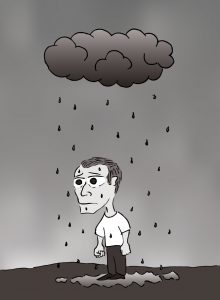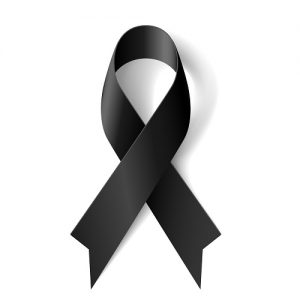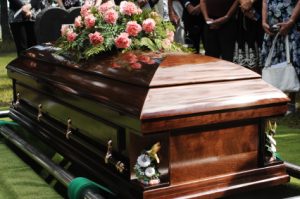Chris Haws is a certified Grief Counselor through the American Academy of Grief Counseling. Below is an article from Telegrief.com. In it, Chris discusses the true nature of grief and the reality that it does not simply go away but is something we have to work with and live with for the rest of our lives. He offers some helpful ideas on dealing with the reality of Grief.
Talking Grief
By Chris Haws
Not many of us reach middle age without having encountered at least one gentle reminder of our mortality. A beloved uncle, an old school friend, or even a favorite celebrity …… news of their passing makes us sad, and may even make us pause for a moment. But the world doesn’t stop turning and the birds don’t stop singing.
Up close, however, bereavement can be a very different story. The death of a spouse, a sibling, a parent or a child can be so devastating that it feels as if your world has come to a grinding halt and that your entire existence has been turned inside out. Your mind is in a fog, you can’t sleep, you can’t eat, your heart aches and you feel as if you’ve been kicked by a mule. You’re experiencing acute grief and it hurts. That’s not too surprising, since all of those unwelcome sensations are the natural consequence of your mind and your body trying to cope with the shock of your loss. Indeed, neuroscientists and endocrinologists have identified dozens of different brain regions, neural pathways and hormonal reactions to account for all of these unpleasant physical feelings. But the good news is that not only are they entirely natural and predictable, (so you aren’t going mad), but they also won’t last forever.
But we’re not just talking about physical feelings here, are we? Bereavement is not the same as a scraped knee or a bruised thumb, both of which can mend themselves in a relatively short period of time. Acute grief is a profound malady of body and mind (and, some would add, soul) that needs gentle, compassionate, sustained treatment and care …… and it can take a while.

It’s important to remember that there is no pre-ordained schedule or time limit for grief, any more than there is a “checklist” of stages to be ticked off. It’s unfortunate that the popular press will sometimes regurgitate the so-called “Five Stages of Grief”, as if they were commonly agreed medical fact. They are not, and it’s worth noting that when Dr Elisabeth Kübler-Ross first identified the five emotions of denial, anger, bargaining, depression, and acceptance in her work at the University of Chicago Medical School in 1969, she was referring specifically to the emotions of terminally ill patients who had been told that they had only a few months to live – and not to the emotions of people who were grieving the loss of someone else. Subsequent research has failed to identify any pre-ordained stages or timetables in the grieving process and it is now commonly accepted that everyone grieves in their own way and in their own time. But while counselors no longer talk about stages of grief, we have identified a number of different categories of grief, and that list is long, and growing. Dr Kübler-Ross’s subjects were suffering from what is now known as Anticipatory Grief. Other categories include Complicated Grief, Disenfranchised Grief, Chronic Grief, Cumulative Grief, and almost a dozen more. They each have their own particular characteristics, but the task facing a grief counselor is generally the same for each.
Firstly, people have to be reassured that while their physical symptoms are distressing and painful, they are also typical and temporary. Bereavement is as profound an emotional shock to the system as a major injury and it will take time to heal. In many ways grieving can be likened to PTSD, or post-traumatic stress disorder, and the treatment protocols can be similar too. People also need to be reassured that it’s not only “OK” to express their grief – by occasionally bursting into tears, for example – but that talking through their raw feelings with others can be an important part of the healing process. Of course, not everyone is very good at dealing with someone who is grieving, and even the most well-meaning friend can sometimes say unhelpful, or even hurtful, things. And that’s when grief counselors can really make a difference. We’re trained not only to guide people through the acute phase of their grief, but to also help them integrate that grief into what will become their new reality.

And that acceptance of the concept of a new reality lies at the heart of integrated grief. By definition, a bereavement is always irreversible no matter how much we might wish it could be otherwise. So as grief counselors, we spend a lot of time encouraging people to avoid traveling down the “coulda / shoulda” pathways, or retreading “what if’s” and “if only’s”. Wishing for a different history is entirely understandable, we all do it in our everyday lives, but in the context of grief it is ultimately not very helpful or productive. A major part of our job as counselors, therefore, is to gently steer the focus of our clients’ energy away from their loss and the more painful aspects of their immediate past, such as their loved one’s unexpected accident or illness, towards a future that can celebrate the happy times that they and their departed enjoyed together .
A future that can – and will – be full of laughter, joy and meaning again.
Chris Haws is a British born Psychologist and Counselor based in Northwest DC who specializes in bereavement and grief, substance abuse and recovery, and personal development and mindfulness. For over three decades, his writing has appeared in print, radio and TV around the world. He is the founder of “Telegrief” and can be contacted at telegrief.com
Also be sure to review our Grief Counseling Program and see if it meets your academic and professional goals.















